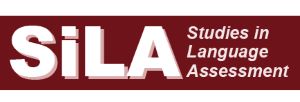The meaningfulness of two curriculum-based national tests of English as a foreign language
Raili Hilden, Department of Education, University of Helsinki, Finland
Jonna Pulkkinen, Finnish Institute for Educational Research, University of Jyväskylä, Finland
Juhani Rautopuro, Finnish Institute for Educational Research, University of Jyväskylä, Finland
Jonna Pulkkinen, Finnish Institute for Educational Research, University of Jyväskylä, Finland
Juhani Rautopuro, Finnish Institute for Educational Research, University of Jyväskylä, Finland
|
https://doi.org/10.58379/DQVS8821
|
Volume 11, Issue 2, 2022
|
Abstract: This paper addresses the aspect of the meaningfulness of a national assessment in English as a foreign language, applying the fairness framework proposed by Kunnan (2018). We compared students’ performance on two receptive language skills of listening and reading on two subsequent national evaluations in Finland, taken by students at the end of compulsory basic education and at the end of general upper secondary education, respectively. The research questions focus on (1) the relationship between students’ performance on the two tests and their gender, language of schooling and parents’ educational level, and (2) the relationship between the students’ receptive language proficiency at the end of basic education and general upper secondary education. The data were analysed using linear regression and quantile regression analyses. The effect of background variables on the proficiency was stronger for low-performing students than for high-performing students. Moreover, students’ proficiency on the receptive skills at the end of basic education well predicted that at the end of general upper secondary education across several points in the score distribution. The findings also indicated persistent challenges with respect to educational equality and equity that requires ongoing attention by policy-makers and test designers.
Keywords: large-scale assessment, learning outcomes, listening comprehension, reading comprehension, validation, fairness, justice
